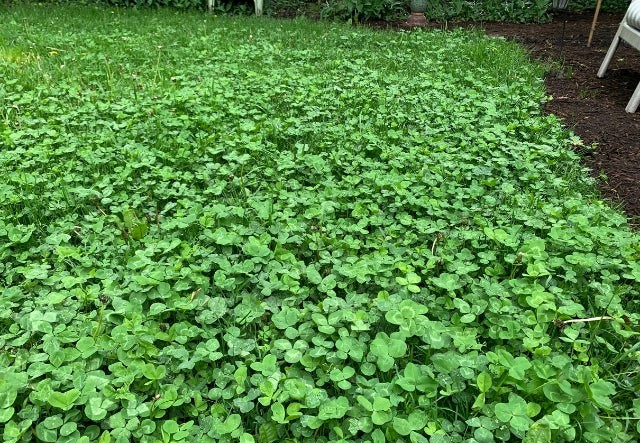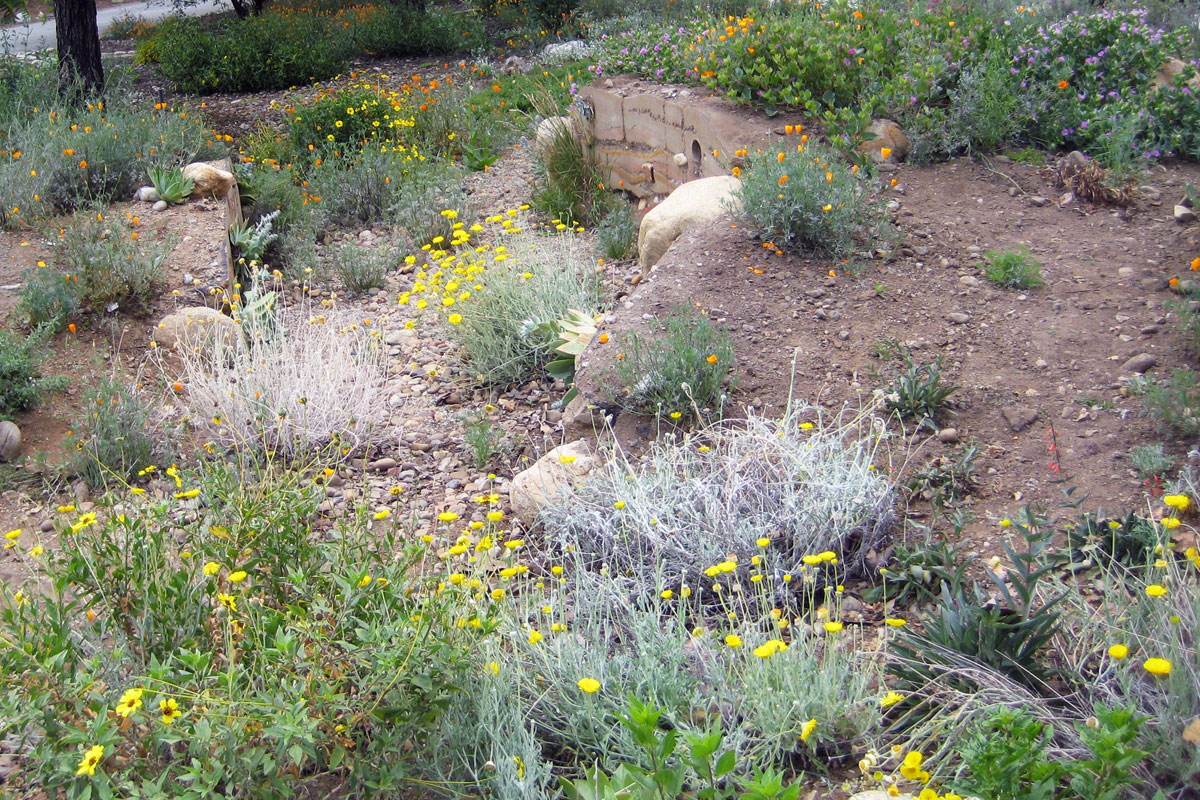Natural Yard Care
Whether you live in our scenic rural countryside or within one of our more urban neighbourhoods, our yards are a great place to eliminate waste, support pollinators, and protect the earth!
It's easy to grow a beautiful and natural lawn and garden without the use of chemicals. It all starts with healthy soil!
- OVERSEED your lawn in the spring by adding extra grass seed. The new grass shoots will crowd out weeds.
- AERATE to ensure healthy roots.
- TOP DRESS your lawn with 0.5 - 1 cm of finely sifted compost.
- MOW YOUR GRASS HIGH to ensure it remains strong and shades out weeds. Leave clippings on lawn to provide nutrients.
- MINIMIZE CHEMICALS that harm the beneficial insects your lawn needs to fight pests and diseases.
- LET THE RAIN TAKE CARE OF WATERING - overwatering causes grass to form weak, shallow roots. Let your grass 'go golden' in the summer, or only water 2.5 cm once per week. Submit photos of your golden grass to our Ugliest Lawn Contest!
- CHOOSE NATIVE PLANTS to ensure your yard and gardent thrive with local levels of rainfall, sunshine and soil nutrients. Visit our Gardening for Nature page for information about adding native plants to your garden.
- ATTRACT BENEFICIAL INSECTS that eat the bugs that chew up your plants. Research shows gardens with 10 or more species of plants attract the most pollinators, needed to grow fruits and vegetables. Find out how to attract pollinators here.
Backyard composting is a simple way to keep waste out of the landfill. Fresh grass clippings, dead leaves, and all your kitchen fruit and vegetable scraps are quickly turned into a great plant and garden fertilizer!
- For information on how to compost, click here.
Did you know you don't need pesticides to grow a healthy lawn or garden? In fact, a healthy natural lawn is more resistant to pests, drought and other conditions.
- Have a look at the Pest Management Regulatory Agency, an agency in Health Canada that regulates pesticides, healthy lawns page
Pesticides, including herbicides, insecticides and fungicides, may be harmful to people and our environment if used inappropriately.
For information on alternatives to pesticides, click here.
Groundcover and Lawn Alternatives
Did you know there are many ground cover and lawn options? By replacing traditional grass lawns with alternatives such as native mosses, clover, or other options like xeriscaping, you can reduce water consumption and required maintenance of your yard.
- CLOVER: Native clover can be a great option in Chilliwack for your lawn. It is low-growing, cold and drought-tolerant, and it supports native pollinators when it flowers each Spring. Clover is a good option for families with children and pets as it is very hardy and won't get damaged easily.

- MOSS: There are roughly 740 species of moss native to BC, many of which would make for a great groundcover. Moss is stays low to the ground and can grow pretty much anywhere without fertilizers or other chemicals. Its is also cold and drought-tolerant.

- XERISCAPING: Xeriscaping is a style of landscaping that requires minimal or no use of water other than what nature provides. With our summers getting drier and warmer, xeriscaping is a great way for Chilliwack residents to help conserve our finite water supply. In general, xeriscaping involves planting native and drought-resistant plants.

- VEGETABLE GARDEN: Ultimatelty, the best use of your yard is growing food! This will require more maintenance but the benefits will be unmatched. Pick your plants carefully to ensure they work well together and will not be too thirsty during the drier months (Make sure you water within seasonal restrictions). Otherwise, consider installing a rainwater collection system.

No matter what type of lawn you choose to have, make sure it does not interfere with Chilliwack bylaws, and that all invasive species are removed and maintained as much as possible. For more information on planting native plants, see our Gardening for Nature page.
Ensure all plants will thrive in your climate to reduce water consumption and maintenance which makes your life easier and it makes for a healthier Chilliwack. Different plants do best in different climatic zones. For your reference, Chilliwack is in zone 7-8.
